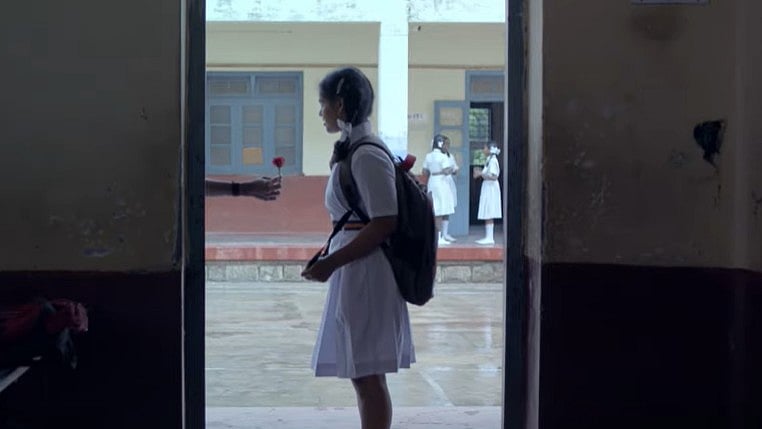
Credit: Special Arrangement
Loneliness, lack of trust, poor self-image, fear of rejection in relationships, and substance abuse are some common concerns students in Bengaluru bring to school counsellors.
The role of these professionals is back in focus after a school counsellor in north Bengaluru alerted R T Nagar police station to a case of suspected sexual abuse. A 15-year-old student had disclosed that her mother had sexually assaulted her. However, she did not confirm the claim in her official statement. Police said the mother denied the allegation and admitted only to scolding the girl over academics. The case is now on hold.
Broken homes
Annaswamy Academy in Fraser Town, whose students are mostly from low-income families, has two counsellors, and all its teachers are trained to identify behavioural changes. Director Ashritha Anantharam recalls a case from five years ago when the staff spotted signs of distress in a teenage girl. She was being sexually abused by her stepfather, they learnt. With help from an NGO, the girl was rescued and shifted to a welfare home and new school, while the father was arrested. “The mother didn’t object to her being taken away,” Ashritha says, adding that many of their children come from broken and violent families.
She also recounts an intervention involving an eight-year-old boy, expelled from two schools for violent behaviour. “He was aggressive here too, but with counselling, he reflected on his conduct and is making amends,” she says. They have inducted activities involving farming and theatre to help students manage emotions in productive ways.
Ravi (name changed), a counsellor at a central Bengaluru school, says family dynamics shape how adolescents talk, behave with peers, approach a relationship and respond to rejection. A stifling home environment can even push a child toward self-harm.
He’s currently working with a Class 10 boy struggling with anger issues. “His father is an alcoholic, violent and moody. His mother, used to the abuse, tells the boy it’s for their own good. The grandparents are authoritarian, use bad language, and give him no freedom. After a year of counselling, he’s calmer and not as easily triggered. We have taught him to talk to friends, or safely push things around when he feels
angry,” he shares.
He also points to the absence of healthy role models at home. He shares the case of a girl who entered a same-sex relationship after witnessing her father’s abuse and infidelity towards her mother. “She later realised she was straight but feared her partner would self-harm if she broke up. With counselling, she learned to set boundaries,” he says.
Alpha male influence
Former school counsellor Anu (name changed), who now has a private practice, says some boys don’t understand consent, influenced by films that glorify “alpha male” behaviour. One 14-year-old girl she worked with was distraught as a boy was harassing her to get into a relationship with him. “She blocked him online, but he kept using fake accounts to reach her. She had initially given in to the relationship out of fear,” Anu recalls.
Youngsters are unable to handle rejection, whether romantic or platonic. Anu remembers a girl who could not “eat, study or sleep” after her best friend cut off all contact, including on social media. “What’s the point of life?”, she asked Anu in the first session.
Furthermore, body image issues and uncertainty about sexual orientation are pushing some students to alter their behaviour around peers — eating less or eating but vomiting in private, and masking their effeminate mannerisms.
Lack of trust
Ravi has observed that students find it most hard to trust anyone these days — at home, in friend circles, and online. “They say that people they interact with online are often different in real life,” he shares. He’s seen some teens turn to unqualified life coaches on social media or AI tools like ChatGPT for help and when that goes nowhere, it reinforces their mistrust and isolation.
Neha Poonacha, wellbeing counsellor at New Horizon International School, Hennur, says loneliness is the most common issue among students aged 10-14. Parental discord, like divorce, is one of the reasons. “Such children hide their pain and act strong, thinking they shouldn’t burden their parents. But this emotional withdrawal damages their ability to form relationships and build trust,” she explains. The death of a loved one, she adds, can also create a fear of future attachments. In the 13-16 age group, she has seen performance anxiety in students inclined to a career in sports.
Neha conducts workshops on themes like anger management, bullying and relationships in classrooms to encourage self-reflection and seeking help among students.
According to Shyla Purushotham, principal, National Public School, Kalkere, a majority of these problems emerge from parents not giving time to children, either because they are working or have conflict between them. This breeds loneliness and eating alone, walking by themselves or acting withdrawn can be signs of that. She feels addressing loneliness can address many of the teenage issues.
Ice-breaker sessions, word-of-mouth, and curiosity drive students to seek counsellors. “Students are told that everything will be kept confidential — except in cases involving self-harm or suicidal thoughts,” says Anu.